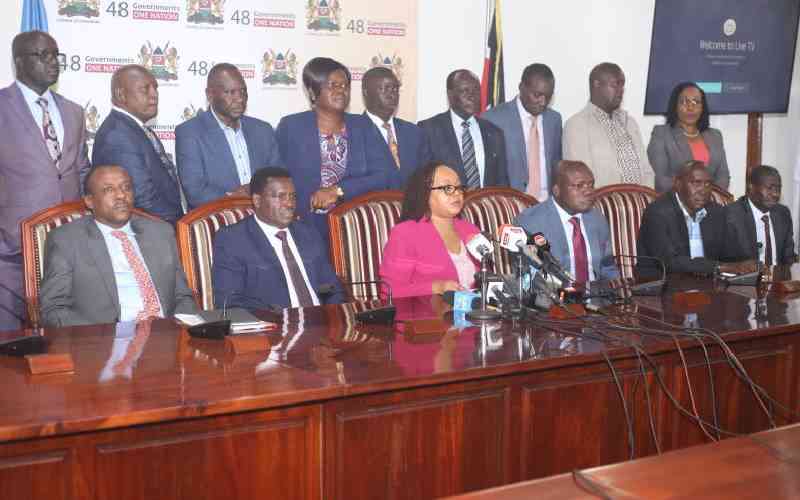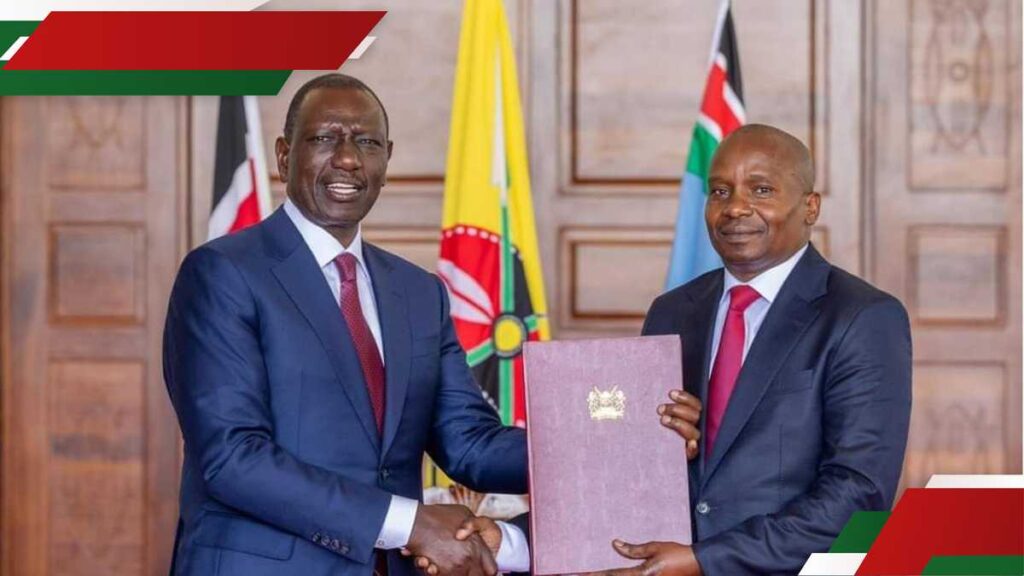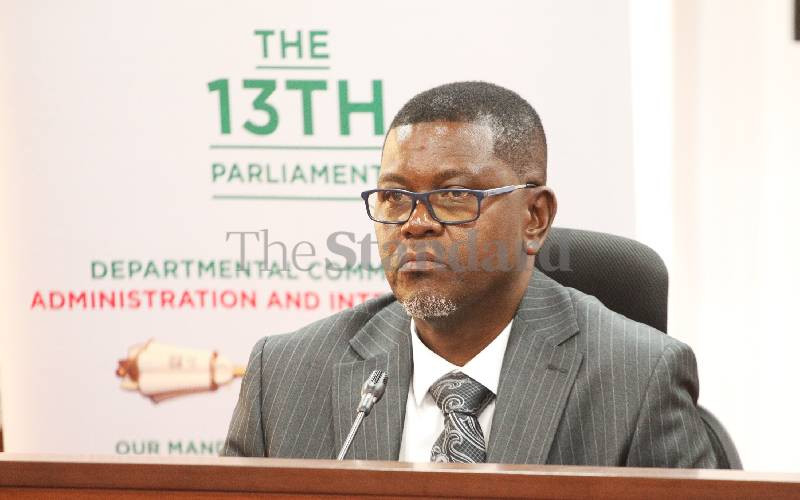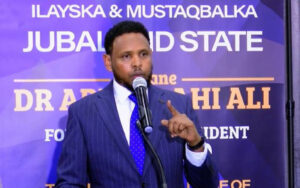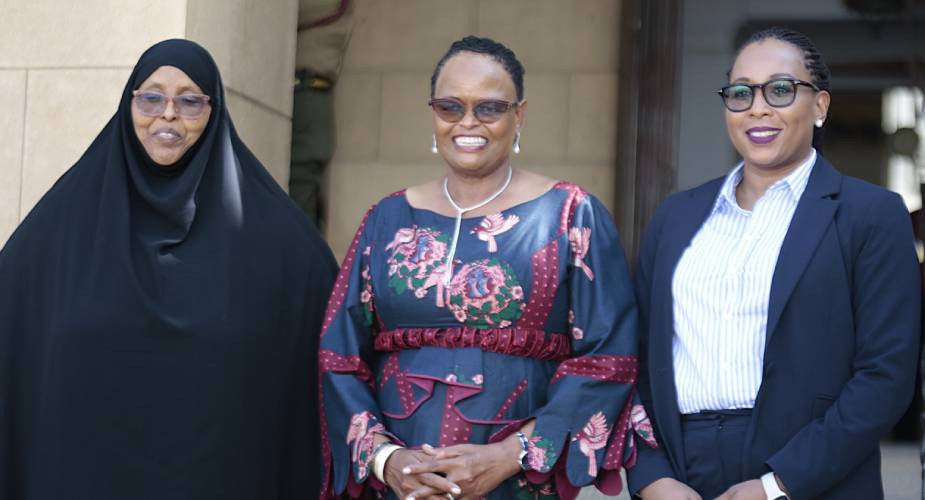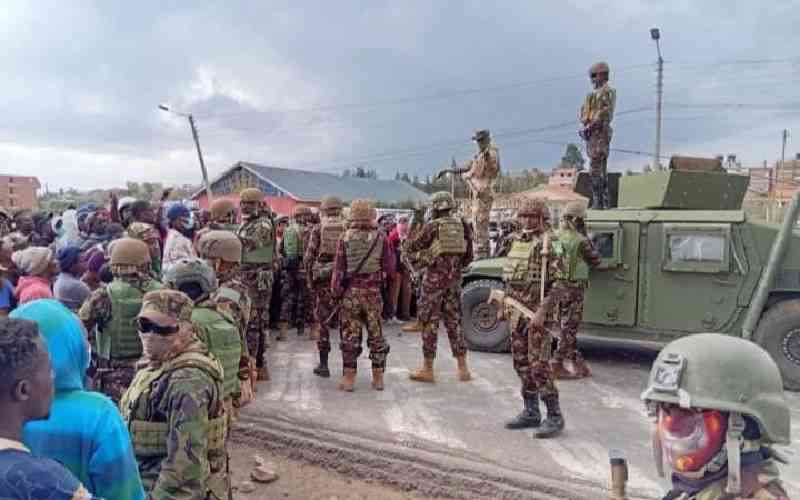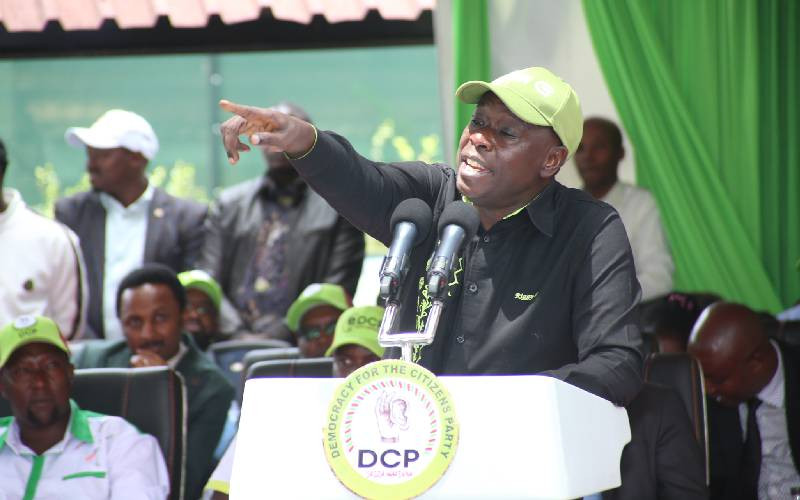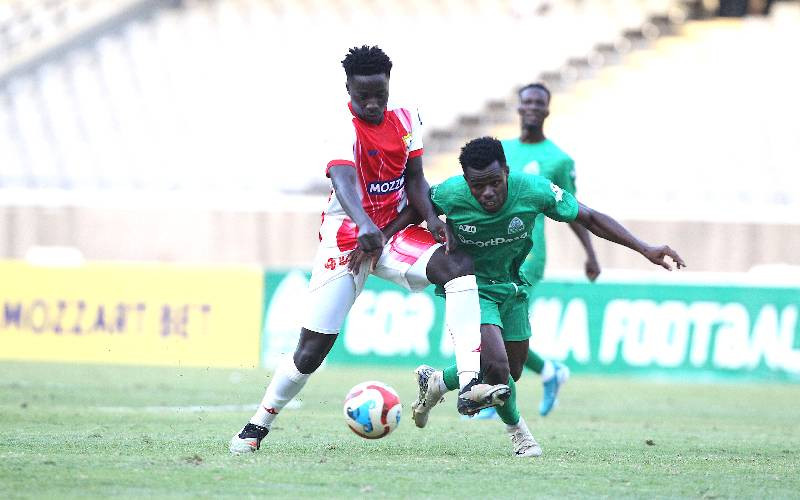The Council of Governors (COG) has accused President William Ruto’s administration of waging a covert war against devolution.
The Governors say steep budget cuts and delayed disbursements are designed to strangle the county governments financially.
They have threatened to halt county services countrywide unless the National Treasury reverses its decision to divert Sh38 billion from their allocations.
This standoff has reignited tensions between Kenya’s national and county governments, raising fears that the devolution framework, a hard-won achievement of the 2010 Constitution, is under threat.
Speaking to The Standard yesterday, a group of Governors painted a grim picture, describing the national government’s actions as a calculated assault on their ability to deliver services. COG Vice Chairman Mutahi Kahiga asserted that the Sh38.4 billion reduction is not a one-off misstep but part of a sustained campaign to undermine devolution.
“It is becoming increasingly apparent that these systematic budgetary cuts are designed to cripple county governments, hindering effective service delivery, and ultimately discredit and kill the devolved system of governance,” said the Nyeri Governor.
The money in question includes Sh24 billion in conditional grants from international donors, funds earmarked for critical projects such as healthcare improvements, agricultural development, fisheries, water systems, road networks, slum upgrading, and infrastructure expansion.
Raila and Ruto MoU
The COG has accused the national government of treating devolution casually, pointing to the Treasury’s claim that the counties lack the capacity to absorb these additional resources in the 2025/2026 financial year.
“By purposefully underfunding county governments, the national government is creating a crisis, only to turn around and put counties on the spot for failing to deliver essential services,” said COG.
Devolution was intended to decentralise power and resources, ensuring that counties are adequately funded to meet local needs. The COG has now appealed to the Senate, the constitutional guardian of devolution, to block the cuts and preserve the progress made since 2013.
This plea comes just weeks after President Ruto and ODM Party Leader Raila Odinga signed a memorandum on February 24, pledging to protect devolution.
“Devolution must continue to be protected from any possibility of claw back on devolved functions, and more effort must be put at devolving all funds allocated to a devolved function, increasing budgetary allocation to counties, and ensuring the timely and predictable disbursement of devolved funds,” the MoU stated.
Yet, the Governors argue that these words have not translated into action.
Stay informed. Subscribe to our newsletter
The COG has also demanded the release of Sh78.03 billion in equitable share funds for January, February and March. This delay has left counties with Sh524 billion pending bills as of February, according to the Controller of Budget, slowing down services.
The Senators are pushing for a Sh465 billion equitable share for the next financial year — Sh60 billion more than the Sh405 billion proposed by the Treasury in its Budget Policy Statement.
However, the County Governments Additional Allocations Bill of 2025, passed on March 14, reveals a stark reduction in funding: conditional allocations dropped to Sh7.85 billion from Sh10.1 billion in 2023/2024, while donor-funded grants fell to Sh17.4 billion from Sh29.1 billion in the same period.
Treasury Cabinet Secretary John Mbadi has pushed back, explaining that the cuts, particularly to donor-funded projects, were based on low absorption rates and the stalled status of the County Governments Additional Allocations Bill in Parliament.
He argued that retaining unspent funds in the budget would inflate the deficit-to-GDP ratio, hampering fiscal planning. “That Bill is still stuck in the National Assembly and Senate; therefore, even if you leave the money in the budget, you will not spend it anyway,” he added, noting that the funds remain tied to donor conditions and cannot be redirected.
Mbadi also distanced the Treasury from the Road Maintenance Levy Fund wars. “If the National Assembly and Governors are flexing their muscles on whether or not to allow some road maintenance levy to go to counties, as the National Treasury, we are not involved in that politics,” he said.
Political analyst Herman Manyora offered a nuanced take, rejecting the notion that the government is deliberately targeting devolution.
“Funding counties should be a natural process. The problem is that funding is not based on function,” he said, suggesting that the government lacks the resources to meet county demands.
“The government cannot be cutting down expenditure to punish counties or kill devolution.”
However, Kirinyaga Governor Anne Waiguru, a former COG chair, questioned the national government’s meddling with conditional grants, warning of diplomatic falling out.
“These funds are released with specific timelines and clear outputs, so when the national government arbitrarily cuts them mid-implementation, what message are we sending to development partners?”
Her Trans-Nzoia counterpart George Natembeya accused the government of sabotaging counties’ credibility.
“We feel that there are deliberate efforts to cripple counties by tainting their credibility. Very soon, we will be unable to get even serious contractors to work in counties,” he said.
Muthomi Njuki of Tharaka Nithi raised the stakes, suggesting that the failure to utilise donor funds could alienate development partners.
“What is the interest of the national government in ensuring that projects are not implemented in the county, using donor money? It is possible that in the coming years, Kenya will have very few development partners,” he warned.
Some donor projects extended by six months after missing December deadlines now risk being abandoned if funds remain inaccessible.
Resisting change
Senators have rallied to the cause, with Nairobi’s Edwin Sifuna insisting that their role is to shield devolution from encroachment. He criticised MPs for overstepping into county functions like road construction and demanded the full devolution of the Road Maintenance Levy Fund.
Kisii Senator Richard Onyonka tempered his support with a call for accountability, noting that six counties have not audited their books in four years. “There is a lot of misappropriation, waste, and misuse of public funds,” he said.
The chairman of the defunct Transition Authority, Kinuthia Wamwangi, noted that the national government has long resisted ceding control. “Intergovernmental relations have not worked. There is resistance to let go of functions to the counties,” he said, labeling the withdrawal of conditional grants as sabotage.
While he stopped short of accusing the government of intentional budget cuts, he stressed that counties deserve priority to thrive.








